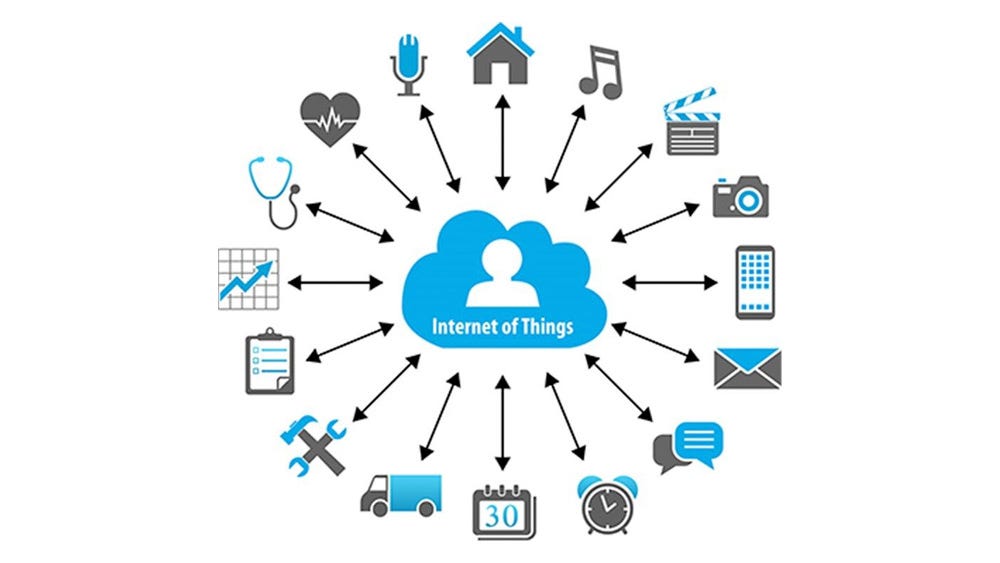The Hosting Insight
Your go-to source for the latest in web hosting news and tips.
Connecting the Dots: How IoT is Wiring Our World
Discover how IoT is transforming our daily lives and connecting everything around us. Uncover the future of a wired world!
Exploring the Impact of IoT on Everyday Life
The Internet of Things (IoT) has significantly transformed our everyday life, seamlessly integrating technology into various facets of daily routines. From smart home devices such as thermostats and security systems to wearable technology like fitness trackers, IoT enhances convenience and efficiency. For instance, consumers can now control their home environment with a simple voice command or monitor their health metrics in real-time. This interconnectivity not only offers a more comfortable lifestyle but also promotes efficiency by minimizing energy consumption and reducing waste.
Furthermore, the impact of IoT extends beyond personal convenience to various sectors including healthcare, agriculture, and transportation. In healthcare, remote monitoring devices enable patients to manage their health without frequent hospital visits, improving their quality of life. In agriculture, IoT technologies empower farmers to optimize resource use and monitor crops more effectively, leading to increased productivity. Ultimately, the influence of IoT is profound, reshaping how individuals interact with the world and driving innovation across multiple industries.

How IoT is Transforming Industries: A Deep Dive
The Internet of Things (IoT) is revolutionizing industries across the globe by enhancing efficiency, productivity, and data-driven decision-making. By intertwining physical devices with the digital world, businesses can collect and analyze data in real-time, leading to remarkable operational improvements. For instance, in the manufacturing sector, IoT-enabled machinery can predict maintenance needs before failures occur, thereby reducing downtime and extending equipment life. This transition from reactive to proactive maintenance is just one example of how IoT is reshaping traditional processes.
Another area experiencing profound transformation is the healthcare industry. IoT devices, such as wearable health monitors, facilitate continuous monitoring of patients, allowing for immediate data transmission to healthcare providers. This capability enables timely interventions and personalized treatment plans, significantly improving patient outcomes. Furthermore, IoT enhances supply chain management by providing visibility into inventory levels and logistics, ensuring that critical medical supplies are always available. As industries continue to adopt IoT technologies, the potential for innovation and growth becomes virtually limitless.
What Are the Security Challenges in an IoT-Connected World?
The emergence of the Internet of Things (IoT) has transformed our everyday lives, connecting a myriad of devices and creating countless opportunities for efficiency and convenience. However, this interconnectedness brings significant security challenges that cannot be overlooked. As more devices come online, the potential for cyberattacks increases exponentially. Vulnerabilities in IoT devices, often due to inadequate security measures or default settings, can be exploited by malicious actors to gain unauthorized access to sensitive information or even control over critical infrastructure. Manufacturers often prioritize quick deployment over robust security, leading to a landscape where many devices are poorly protected.
Furthermore, the vast amount of data generated by IoT devices enhances the risk of data breaches. With millions of devices communicating with each other, ensuring the integrity and privacy of this data becomes increasingly complex. Organizations must navigate issues such as data encryption, secure communication protocols, and compliance with privacy regulations. Additionally, the lack of standardized security protocols among different manufacturers complicates the situation, creating a disparate ecosystem where a single weak link can compromise the entire network. As IoT continues to expand, addressing these security challenges will be crucial for safeguarding both personal and organizational assets.